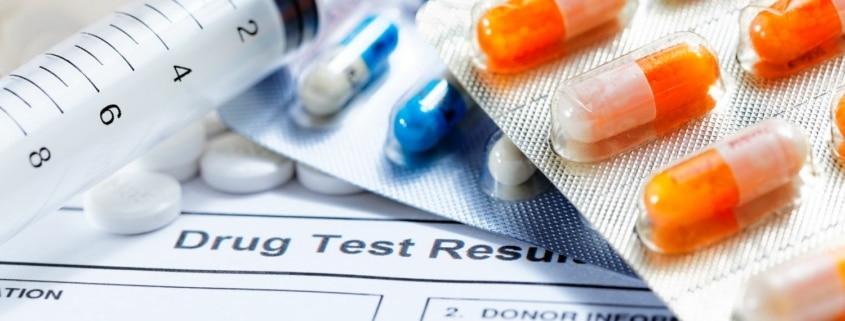Do Sober Living Homes Make You Take Drug Tests?
Sober living homes, also known as halfway houses or transitional homes, are an essential part of the recovery journey for many individuals striving to overcome addiction. They provide a safe and supportive environment where people can continue to build a foundation for their sobriety, learn essential life skills, and reintegrate into society.
Sober living homes enforce strict rules and requirements to maintain a substance-free and supportive environment. One of the most important requirements is that residents remain abstinent from drugs and alcohol. Sober homes enforce this rule by facilitating random drug testing.
Why Do Sober Living Homes Drug Test Residents?
Residents of sober living homes are subject to randomized drug testing to confirm they have stayed sober. Drug testing in sober living homes serves several critical purposes, all of which are designed to create an environment that promotes sobriety, accountability, and overall well-being for residents.
If one resident is using drugs or alcohol, other residents may feel uncomfortable or unsafe. Regular drug testing helps ensure that the house remains drug-free, providing a safe space for everyone.
Not only does drug testing ensure a drug-free environment, but it also promotes accountability. Knowing that they may be tested at any time helps keep individuals accountable for their actions and reinforces the commitment to sobriety.
Unfortunately, relapse is a common challenge among people in recovery. Between 40 and 60% of people who seek treatment for substance abuse relapse at some point in their recovery. However, drug testing can help detect relapses early. By detecting potential relapses early through drug testing, residents and staff can address the issue promptly, providing the necessary support and resources to prevent a full-blown relapse.
What Types of Drug Tests are Used?
There are four types of tests that can detect drugs in your system. These include urinalysis tests, blood tests, saliva tests, and hair tests. Urinalysis tests screen for drugs by testing a urine sample. Urine tests are the most popular type of drug test because they are easy to administer, minimally invasive compared to the other options, affordable, and accurate.
In addition to urine tests, residents may be required to take random breathalyzer tests, too. Breathalyzer tests can detect whether or not a person has been drinking by calculating their blood alcohol content (BAC).
How Often Are Residents Drug Tested in Sober Living Homes?
The frequency of drug testing in sober living homes varies from one facility to another. Some sober homes may conduct drug tests randomly, while others might have a set schedule, such as weekly or monthly tests. Ultimately, the goal is to strike a balance between maintaining a drug-free environment and respecting residents’ privacy and dignity.
What if Someone Fails a Drug Test While Staying in a Sober Home?
It’s important to note that the goal of drug testing in sober living homes is not to punish residents, but rather to support them. If a resident tests positive for drugs, the response is typically focused on providing additional resources, counseling, or adjusting the resident’s treatment plan to address the underlying issues that led to the relapse. The test administrator will let management know about the results, and management may refer the individual back to a treatment program.
What if I Get a False Positive Drug Test?
Although rare, false positive tests are possible. False positives are most common when you are taking a prescription medication that can provide a positive result for some type of illicit substance.
If you believe you got a false positive drug test result, be sure to talk to the test administrator. Provide them with a list of any medications you are taking and ask that they run further tests on your sample. Additional laboratory testing can reveal whether or not your results were a false positive.
Benefits of Drug Testing in Sober Living Homes
Drug testing is the best way to ensure a drug-and-alcohol-free home. Advantages of drug testing in sober living homes include:
- Increased accountability
- Early detection for relapse
- Maintain a supportive environment
- Build trust among residents
- Reduced relapse rates
Sober Living Home Residents’ Rights and Confidentiality
Even though drug testing is a routine practice in the majority of sober living homes, it is still important to respect residents’ rights and confidentiality. Residents must be informed about the drug testing policy when they enter the sober living facility, and their consent should be obtained. Additionally, results are kept 100% confidential, shared only with the individual being tested and relevant staff members involved in the person’s treatment and care.
Learn More About Sober Living Homes in South Florida Today
If you or a loved one need support on your recovery journey, our sober living homes in Broward County can help. We are a top-rated transitional living residence for men and women offering co-ed and men’s only sober homes. We make living in a halfway house successful by gently incorporating a set of rules, a supervised structure, and the sober support needed to sustain your sobriety for the long term.
If you’re in need of a safe place to stay, don’t delay, and contact New You Sober Living today! Located in the lush and tropical environment of South Florida, our atmosphere is perfect for you to recover and regain your strength for a better tomorrow.




Leave a Reply
Want to join the discussion?Feel free to contribute!